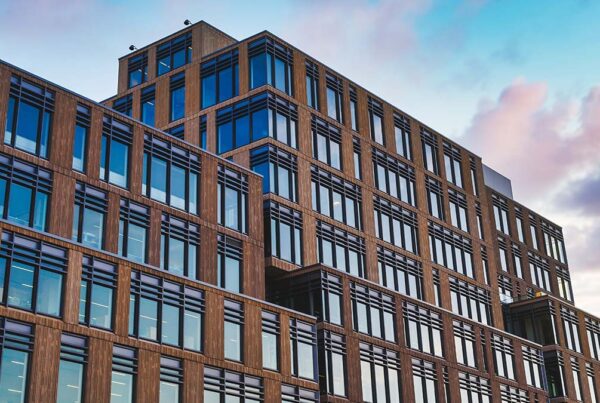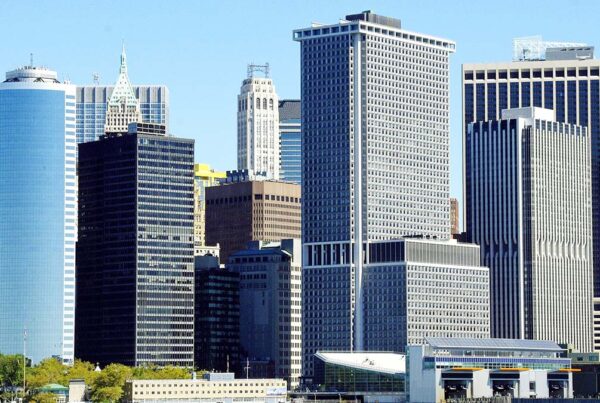
When you are buying or selling commercial property, there are certain commercial real estate closing costs you should be aware of. Typical closing costs can quickly turn into major expenses, so it is important to understand what they are and how they will impact your transaction. The buyer/borrower shout anticipate paying some—or all—of the following fees at the close of the loan, though it should be noted that costs vary significantly depending on the size of the property, loan amount, and lender terms.
In this article, we’ll talk about the most typical closing expenses included in the closing costs of commercial real estate deals.
What are commercial real estate closing costs?
Commercial real estate closing costs are expenses incurred when buying or selling commercial property. Average closing costs include various items central to the sales transaction and are collected during closing (also called the completion or settlement), which is the final step in executing a real estate transaction.
Closing costs are incurred by both the buyer and the seller, but each party typically pays for different items.
Do all commercial real estate deals have the same closing costs?
No, it depends on the type of loan or financing the buyer and seller agreed upon. Most closing costs in commercial real estate are associated with conventional loans that are provided by commercial lenders. So, if the buyer is using conventional financing, there will be a substantial amount of closing costs. However, if the buyer pays in all cash or if the buyer and seller agree to a seller-financing deal, only a few of these closing costs may still apply.
For the purpose of this article, we’ll focus on the most common closing costs you can expect to see if you secure financing through private lenders. These closing costs include common items such as appraisals, inspections, broker commissions, and loan fees.
Who pays closing costs on commercial property?
In a deal that is financed with traditional financing (from a bank), both the buyer and seller can expect to pay some closing costs. Seller closing costs and buyer closing costs are typically different (and we’ll get into that in a moment), but they can be broken down into two types of costs.
What are the different types of closing costs?
There are two types of closing costs: flat-fee and value-based or size-based closing costs.
Let’s look at each type in more detail.
Flat-Fee Commercial Property Closing Costs
Flat-fee commercial property closing costs are closing costs that cost the same amount of money regardless of the size or purchase price of the property. Flat fee closing costs get their name because they’re usually pre-determined prices established by the service provider and are structured as a one-time fee. These types of costs typically cover third-party services and include:
Appraisal Fees
An appraisal is a service performed by a qualified third-party appraiser who evaluates how much the commercial property is worth considering the size, location, condition, market conditions, and other key factors. Almost all lenders require a valuation by a third-party commercial appraiser. The appraisal cost is usually a pre-determined amount. If the value of the building from the appraisal comes back as being less than the sale price, it can cause the lender to back out of the deal or request the buyer provides a larger down payment.
Environmental Report
An environmental report is used to determine if any hazardous contaminants are in or around the listed property. The investigation cost is covered by prospective buyers, and it is finished in one or two stages; the second is only finished if necessary.
During the first phase of an Environmental Site Assessment, also known as an ESA or Phase I ESA, the present and previous uses of a property are investigated to determine whether past or present property uses have had an effect on the soil or groundwater beneath the physical property that may be hazardous to the environment or people’s health. If any hazardous problems are discovered, the lender and/or the owner may be held liable, and the property’s value may also be impacted. Additionally, if hazardous problems are discovered in phase one, the stakeholders will likely request to perform a Phase II ESA.
In a Phase II ESA, experts assess the potential impact on the subsurface at a site. During the subsurface investigation, experts test the soil, soil gas, and/or groundwater to identify environmental impacts. The ideal outcome is to identify ways stakeholders can reduce their liability and future cleanup costs.
Engineering Report
Although engineering reports are not required by all lenders, they’re one of the more typical closing costs for commercial real estate. An engineering report examines the building’s structural soundness and features. When buyers request an engineering as well as an inspection and environmental report, they gain a great sense of the property’s condition.
Processing and Underwriting Fees
Processing and/or underwriting fees are levied by lenders to cover the amount of time their staff members spend working on a loan. These fees are explicitly outlined in the loan documents.
Credit Checks
If you’re borrowing money, your lender will want to know how likely you are to pay them back. With this, most lenders require every significant stakeholder in the buying party to pay a credit report fee for a credit check. The more investors that are involved in a deal, the higher the price of the credit checks.
Zoning Report
A zoning report may be included in the closing costs for commercial real estate, depending on the lender. Cities and counties use zoning to create districts and allot specific uses for different geographic areas of the city or county. A zoning report helps identify whether or not the property complies with the city and/or county rules. If the intended use of the property does not comply with the zoning rules, it could create complications for the buyer.
Seismic Report
If the property is in an area with known seismic activity, a lender may require a seismic report. A seismic report examines the property’s structural capabilities, and it’s ability to handle seismic activity.
Value-Based and Size-Based Commercial Property Closing Costs
Size-based or value-based commercial property closing costs are costs where the total amount is determined by the property’s size and/or value. Let’s take a look at each type.
Commercial Real Estate Loan Origination Fee
If you secure a commercial loan to finance the property, you’ll likely need to pay loan origination fees (also referred to as origination points). Interest and origination fees are the main ways lenders profit from commercial real estate loans. Mortgage fees on a commercial mortgage typically range from 0.5 to 1.0%, however, some lenders start lending at “par,” which means they don’t charge any origination fees and merely collect interest as payment. As a result, shopping and being aware of all your loan options is crucial.
Mortgage Broker Fee
A broker fee is included in the closing costs for buyers/borrowers who use a broker. Commercial mortgage brokers are experts who find and secure commercial real estate loans for buyers. Depending on the broker, brokerage costs can be a flat rate, a percentage of the loan, or a combination of the two.
Real Estate Agent Fee
Like a residential closing, a commercial real estate agent receives their realtor commission on the closing date at the closing table. Their real estate commissions are a percentage of the purchase price (not the asking price).
Inspection Report
In order to determine the condition of the property, lenders typically require an inspection, and it’s frequently a good idea to have an inspection regardless of any lending requirement. A property’s safety, security, and required repairs will be determined by an on-site inspection. Depending on the type and size of an asset, inspection costs can vary. Inspections are important because they’re one of the main tools for the buyer’s due diligence process, and the findings from the inspection can potentially be used to further negotiate the deal’s financials.
Legal Fees and Attorney Fees
Deals in commercial real estate are often complicated and therefore require a lot of paperwork and legal expertise. As a result, many borrowers decide to use a commercial real estate lawyer in their transactions, which raises the closing costs by adding legal fees. While not all lenders mandate that borrowers use attorneys during the lending process, most borrowers can benefit from their assistance.
Lender’s Legal Fees
The cost of a lender’s legal fees is dependent on a number of factors and, therefore, can vary significantly. Factors contributing to this cost include the property’s size, location, execution style, and attorney fees.
Buyer’s Legal Fees
The buyer’s legal costs will differ and be influenced by many of the same variables as a mortgage lender’s legal costs. Because the lenders must actually draft the loan documents, anticipate that the buyer’s fees will be lower than the lender’s fees. Nevertheless, if you are the buyer of a commercial property and you are seeking a lot of legal advice, be ready to shell out a substantial sum for a good commercial real estate attorney.
Title Search and Title Insurance
To ensure that the property’s title is clear, the title company will perform a title search. They will also provide insurance in case a problem is uncovered in the process. The purpose of title insurance is to help protect the buyer of the property in case a different party presents a strong claim that they own the title to the building rather than the seller. If this happens, the title insurance company may reimburse the buyer for the policy’s face value, depending on the terms of the title insurance policy. Additionally, title insurance can help avoid legal action against the seller in case of a title issue. Title insurance is typically paid for by the buyer (based on the value of the property).
Are commercial real estate closing costs tax deductible?
It’s known that real estate investors love investing in commercial properties because of the tax benefits. However, this can be tricky because it depends on how the property is financed. If you are the buyer of a property and are the sole owner, the investment property can help mitigate your tax liability because the IRS says Points, closing fees, and mortgage interest paid on a loan secured by investment property are tax deductible. In some instances, appraisal costs, inspection costs, mortgage insurance premiums, title fees, loan origination fees, recording fees, and abstract fees are deductible closing costs. However, if the property is financed through a real estate syndication or the use of a business entity, these deductions may not apply directly to you. Therefore, as always, it’s crucial to consult a tax professional for every commercial real estate transaction you do (whether your buying or selling).
Are monthly payments part of commercial real estate closing costs?
Regardless of what type of property the buyer is purchasing, after the escrow fees and closing costs are paid, the closing costs are officially complete. At that point, the buyer needs to make the monthly payment to service their debt (commercial financing). The monthly payment amount depends on the sales price, down payment, loan amount, interest rate, property taxes, and other loan terms.
Commercial Building Closing Costs Summary
As always, these articles are for educational and informational purposes only. All commercial real estate deals are unique and come with their own set of terms and conditions. As a result, you should always seek professional advice when conducting a commercial real estate transaction by bringing in multiple experts.



